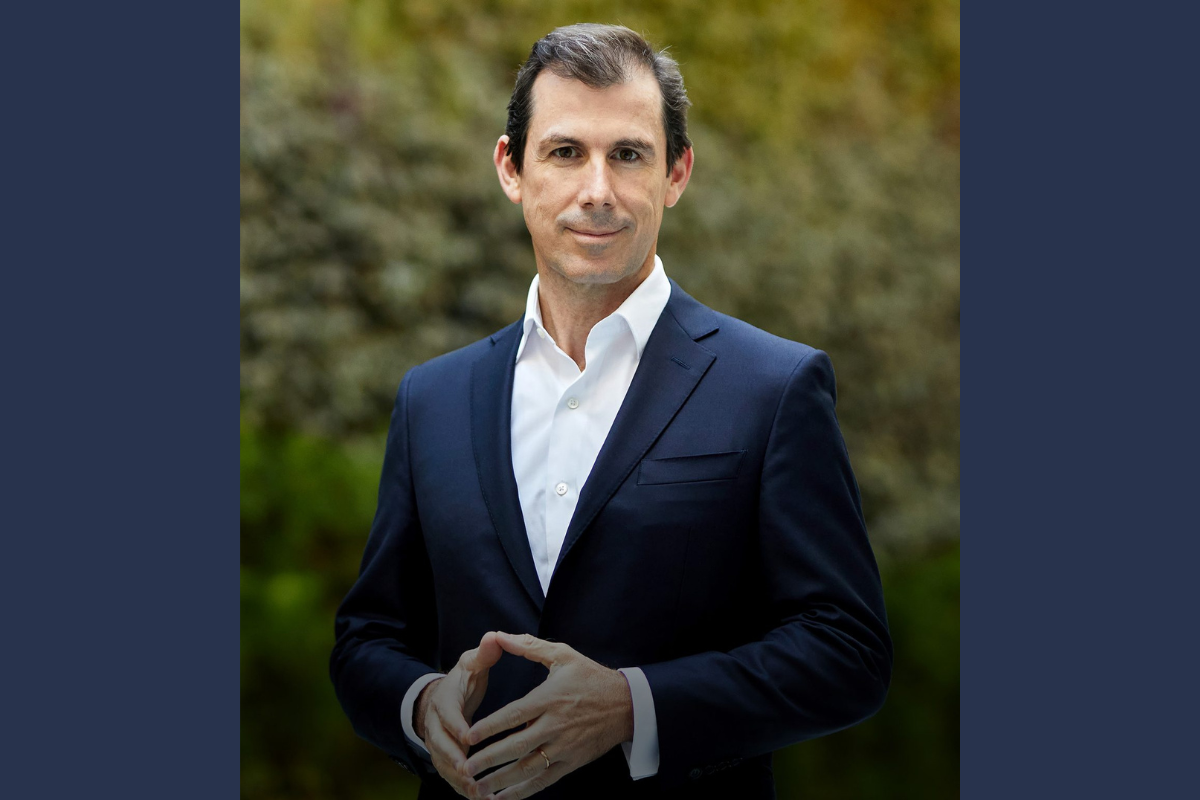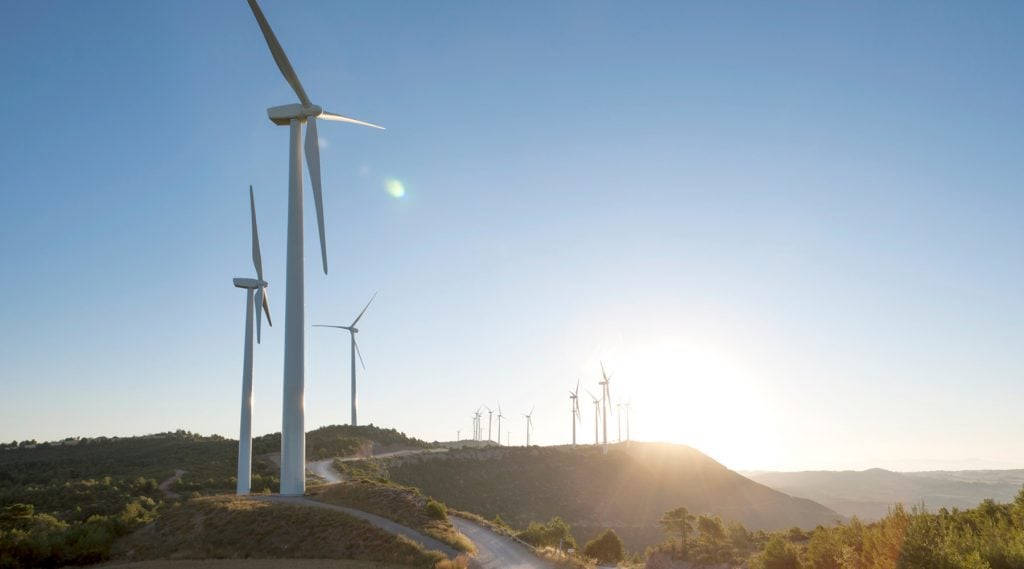Accelerating the Energy Transition: Miguel Stilwell d’Andrade
EDP CEO Miguel Stilwell d’Andrade is calling for an accelerated energy transition as the world transits tumultuous times, arguing it’s imperative for the planet and cheaper in the long-run.
As the climate crisis intensifies, countries and companies around the world have been transitioning from fossil fuels to renewable sources of energy such as solar, wind and hydroelectric. World events – including the Russian invasion of Ukraine and the economic disruptions provoked by the COVID-19 pandemic – have complicated that transition as electricity and petrol prices have soared.

Sceptics have even called for a more cautious energy transition. EDP CEO Miguel Stilwell d’Andrade is not one of them. Miguel instead urges audacity and an acceleration of the energy transition rather the pausing or pursuing a path of moderation.
"The whole issue of the energy crisis that we’ve been living in since the summer of last year has been a huge challenge and a disruption in the market," Miguel tells The CEO Magazine. "But one thing has been very clear: the energy transition will have to go even faster."
Recognising the urgency in curbing carbon emissions, EDP has bet big on the energy transition, seeing both the compelling business case in producing and distributing renewables and offering clients solutions that enhance decarbonisation.

One thing has been very clear: the energy transition will have to go even faster.
"Renewables are by far the most competitive and cheapest form of energy around," Miguel says. "It was before the energy crisis, and now it is even clearer. And it’s predictable."
AHEAD OF THE GAME
As a part of Lisbon-based utilities operator Energias de Portugal (EDP Group), EDP has invested heavily in solar and wind power. It also has pledged to produce 1.5 gigawatts of electricity from renewable hydrogen by 2030 and plans to repurpose coal plants – to be phased out in 2025 – for producing that hydrogen. EDP also recently inaugurated Europe’s largest floating solar plant on a reservoir in Alqueva, Portugal, which could supply power to more than 30 per cent of the families in the region.
"EDP is clearly an undisputed leader in the energy transition. Whether it’s in renewables, networks or client solutions, these are all areas that we’ve been very progressive in over the last two decades," Miguel says. "We started investing very early so we’ve been ahead of the curve. Renewables have become mainstream, but we’ve been there since the very beginning."
EDP Group was formed in 1976 after the Portuguese government consolidated 14 nationalised energy assets into a single company. It started investing internationally in 1996 with a move into Brazil and started its process of privatisation the following year.
Miguel – who graduated with a mechanical engineering degree from the University of Strathclyde in Scotland and an MBA from MIT – joined EDP in 2000, working on strategy and corporate development, along with mergers and acquisitions. He became CEO of both EDP Group and EDP Renewables in January 2021.
EDP is clearly an undisputed leader in the energy transition. Whether it’s in renewables, networks or client solutions, these are all areas that we’ve been very progressive in over the last two decades.
EDP’s three pillars
His passion for the renewable energy and EDP’s work in creating a net-zero world is clearly evident.
"Apart from just being an interesting sector, it’s being able to have an impact, being able to feel that externally EDP is making a difference, that we are changing tomorrow now," Miguel says. "I get out of bed and feel very positive about what I’m doing, and I hope that everyone else in the company also does the same thing. And I think creating that environment is absolutely key."
EDP ranks as the world’s fourth-largest producer of renewable energy with operations in 29 countries.
Now, EDP Group as a whole wants to go deeper in the energy transition. Shortly after becoming CEO, Miguel oversaw a revision of the EDP business plan. It focused heavily on the energy transition and posited three key pillars: Accelerated and sustainable growth, environmental, social and governance (ESG) excellence, and making the company "future-proof".
Renewables are by far the most competitive and cheapest form of energy around. It was before the energy crisis, and now it is even clearer.
On the first pillar, EDP is investing €24 billion until 2025, Miguel says, with 80 per cent directed toward renewables and the remaining 20 per cent in networks and client solutions. "That’s a very strong growth plan," he says. "We’re building 20 gigawatt of renewables between 2021 and 2025."
With the second pillar of ESG excellence, Miguel sees EDP building on a position of strength: it was recognised in 2021 by The Down Jones Sustainability Index as the world’s most sustainable electric utility.
In its assessment of utilities, EDP was ranked in the top two in the environmental dimension, top three in the area of governance and economics and top four in the social dimension, according to statement by the company.
"We’re really focusing on ESG and making sure we are top of class because it is something that differentiates us," Miguel says.
"We want to be a super ethical company," he adds, pointing to its successful efforts to increase female representation on EDP’s board, and in the company overall, and focusing on recruiting women in universities for engineering careers. Being ethical also involves recognising the potentially negative impacts of its projects on communities. "We need to really engage with them and make it a positive," Miguel says, "We’re committing to €300 million of investment by 2030 in social impact initiatives."
We’re really focusing on ESG and making sure we are top of class because it is something that differentiates us.
The energy transition involves disruption. "There will be people impacted," Miguel says, pointing to the coal plants that EDP is closing and their workforces.
"Managing that transition, making sure that no one is left behind, we talk a lot about that concept," he says. "Coal plants have a lot of workers working there but a lot of service providers are trying to re-qualify those people, using them for renewable projects, for hydrogen projects."
The third pillar, Miguel says, is "future-proofing" the company’s organisation and retaining and developing talent – an imperative in a fast-changing sector.
"We will survive this energy transition and we will come out ahead of the others," Miguel says.
"Whenever there’s a change, whenever there’s a disruption in the sectors, there’ll be winners and there’ll be losers. We clearly see ourselves as a winner. And that idea of being a future-proof organisation is extremely important."
Sponsored by: Domo
A US-based software-as-a-service company that specialises in helping organisations all over the world make more out of their data, resources and people.
Read More